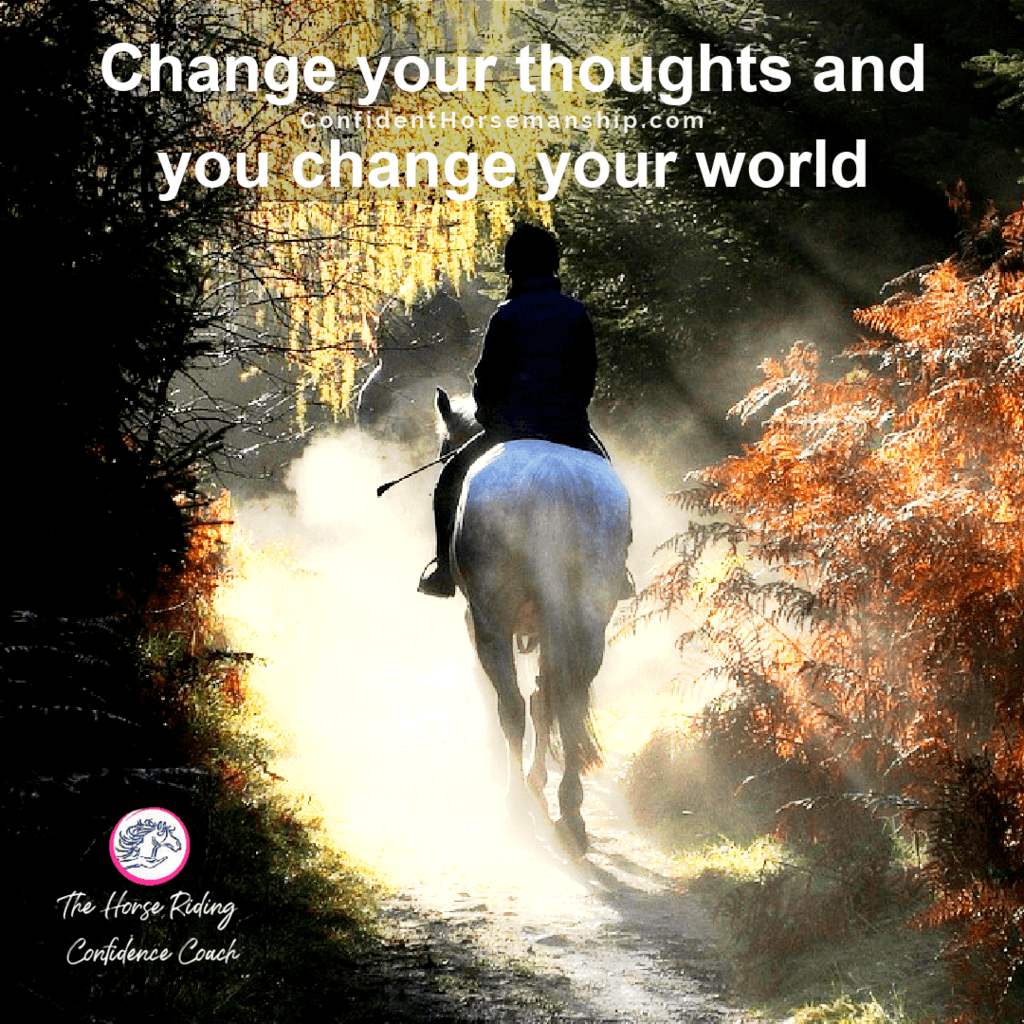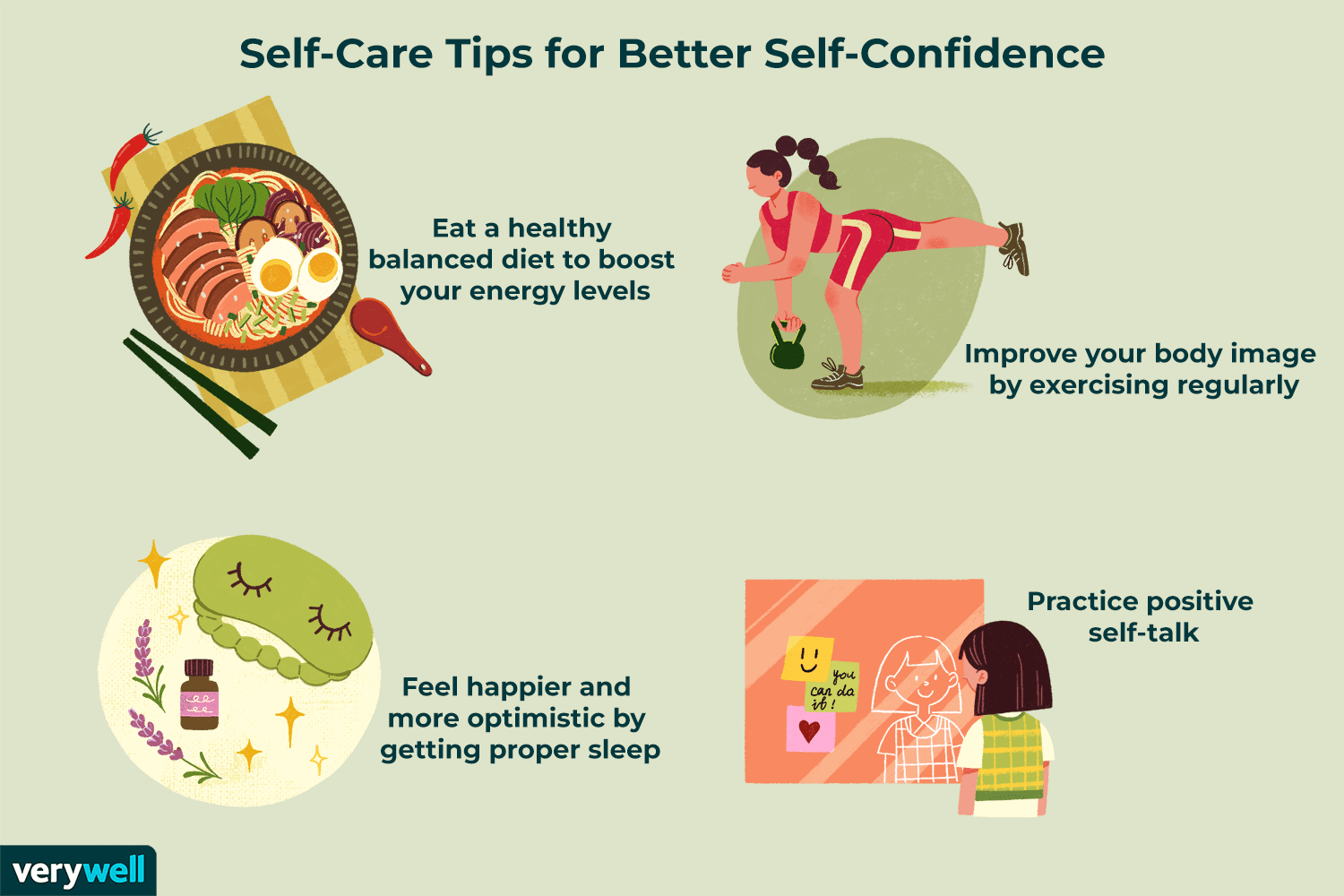In this article, we will explore the impact of horseback riding on self-esteem. Horseback riding has long been considered a therapeutic activity that can boost confidence and self-worth. It not only provides physical benefits but also offers powerful emotional and mental rewards. We will delve into the reasons why horseback riding can have such a profound impact on self-esteem, and how it can positively influence various aspects of a person’s life. So, if you’re curious about how saddling up can lead to a stronger sense of self, keep reading.
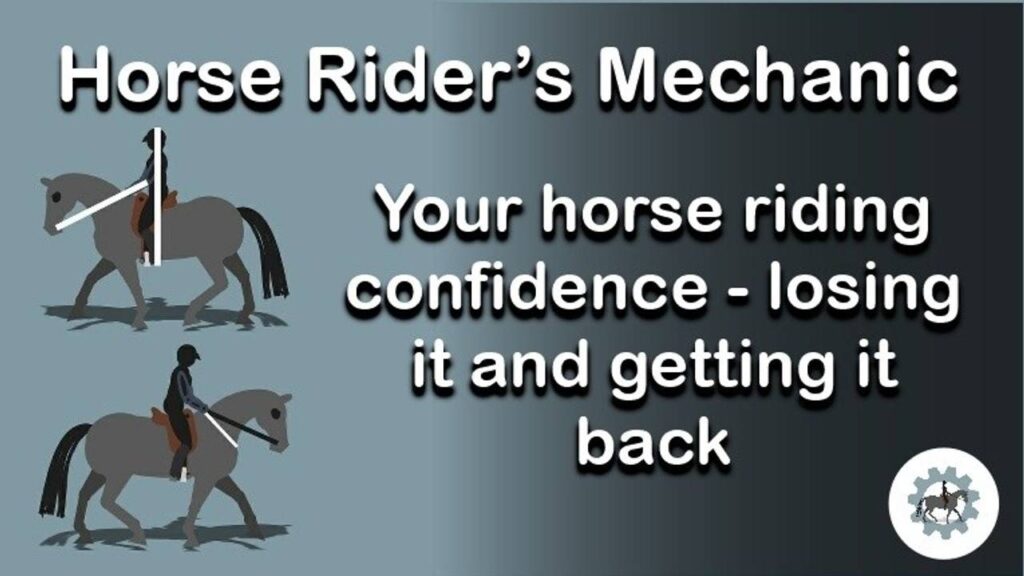
The Benefits of Horseback Riding on Self-Esteem
Horseback riding has long been regarded as a beneficial activity for individuals of all ages. Beyond the physical benefits, such as improved balance and coordination, horseback riding has a profound impact on self-esteem. Engaging in this activity can lead to increased confidence, enhanced self-worth, and a positive body image.
Increased Confidence
One of the most significant benefits of horseback riding on self-esteem is the increase in confidence that it brings. When riding a horse, you are responsible for guiding and controlling such a powerful and magnificent animal. As you successfully navigate the terrain and control the horse’s movements, you begin to believe in your abilities. This newfound confidence extends beyond the riding arena and spills over into other areas of your life.
Enhanced Self-Worth
Horseback riding also contributes to enhanced self-worth. The bond that forms between rider and horse is unique and transformative. As you learn to communicate and connect with your horse, you develop a sense of purpose and belonging. This connection becomes a source of validation and empowerment, boosting your self-worth and reminding you of your inherent value.
Positive Body Image
In a world where body image issues are prevalent, horseback riding offers a refreshing and positive perspective. Unlike other physical activities that may focus on appearance, horseback riding emphasizes the relationship between horse and rider rather than external appearance. This shift in focus allows riders to develop a more positive body image, appreciating their bodies for what they can do rather than how they look.
The Connection Between Horseback Riding and Self-Esteem
The link between horseback riding and self-esteem can be attributed to several factors. Building a relationship with the horse, developing riding skills, and achieving personal goals all contribute to the positive impact on self-esteem.
Building a Relationship with the Horse
The bond formed between a rider and their horse is built on trust, respect, and mutual understanding. Spending time together, grooming, and caring for the horse creates a deep connection and a sense of companionship. This partnership serves as a foundation for building self-esteem, as the rider experiences the unconditional acceptance and support provided by their equine friend.
Developing Riding Skills
As riders progress in their equestrian journey, they acquire and refine various riding skills. Mastering different riding techniques, commands, and maneuvers instills a sense of accomplishment and self-assurance. With each milestone achieved, riders gain confidence in their abilities and recognize their capacity for growth and improvement.
Achieving Personal Goals
Setting and achieving personal goals while horseback riding is a powerful way to boost self-esteem. Whether it’s conquering a particular riding technique, successfully navigating a challenging trail, or competing in equestrian events, each achievement reinforces a sense of capability and resilience. The satisfaction derived from accomplishing these goals fuels self-esteem and encourages further personal growth.
The Role of Horseback Riding in Therapy
Horseback riding is not only a recreational activity but also serves as a valuable tool in therapy. Equine-assisted therapy, in particular, harnesses the power of horses to enhance emotional well-being and boost self-confidence.
Equine-Assisted Therapy
Equine-assisted therapy, often called equine therapy or horse therapy, is a therapeutic approach that involves horses as active participants in the healing process. It has been proven effective in addressing a wide range of emotional, psychological, and behavioral issues. This form of therapy utilizes the unique capabilities of horses to establish trust, promote emotional regulation, and facilitate personal growth.
Improving Emotional Well-being
Interacting with horses can have a profound emotional impact. Horses are highly attuned to human emotions and can sense fear, anxiety, and tension. Through horseback riding and other equine activities, individuals are encouraged to explore and confront their emotions in a safe and non-judgmental environment. This process promotes emotional well-being, fosters self-awareness, and facilitates the development of healthy coping mechanisms.
Boosting Self-Confidence
Equine-assisted therapy is particularly effective in boosting self-confidence. As individuals engage with horses and face various challenges, they learn to trust their instincts, make decisions, and take control of their actions. The sense of accomplishment derived from successfully completing tasks with horses serves as a powerful catalyst for self-confidence and empowerment.
The Psychological Impact of Horseback Riding
Horseback riding goes beyond physical exercise and has significant psychological benefits. Engaging in this activity offers stress reduction and relaxation, enhances cognitive abilities, and provides an opportunity for self-exploration and reflection.
Stress Reduction and Relaxation
Spending time with horses in a serene and natural environment provides a much-needed escape from the pressures of daily life. The rhythmic motion of riding can be incredibly soothing, promoting relaxation and reducing stress levels. Additionally, the bond formed with the horse creates a sense of emotional support and serves as a source of comfort and serenity.
Enhancement of Cognitive Abilities
Horseback riding requires mental focus and concentration. Riders must be aware of their body position, anticipate the horse’s movements, and respond to various cues and commands. These cognitive demands stimulate the brain and enhance cognitive abilities such as problem-solving, decision-making, and spatial awareness.
Self-exploration and Reflection
The solitude and peacefulness of horseback riding provide an ideal environment for self-exploration and reflection. As riders navigate the trails or ride in an arena, they have the opportunity to delve into their thoughts and feelings. Riding can be a meditative experience, allowing individuals to gain insights into themselves, process emotions, and gain clarity about their goals and aspirations.
Horseback Riding and Social Skills
Engaging in horseback riding cultivates social skills by facilitating the creation of bonds with fellow riders, developing communication skills, and promoting teamwork and cooperation.
Creating Bonds with Fellow Riders
Horseback riding often brings people together with a shared love and passion for horses. Participating in riding lessons, group trail rides, or equestrian events provides opportunities to connect with like-minded individuals. These bonds established among fellow riders foster a sense of belonging, support, and camaraderie.
Developing Communication Skills
Communication between rider and horse relies greatly on non-verbal cues and body language. Riders must learn to communicate effectively with their horses through subtle shifts in weight, reins, and leg aids. This heightened awareness of non-verbal communication not only enhances the rider’s ability to connect with their horse but also transfers to improved communication skills in their interactions with other individuals.
Teamwork and Cooperation
In certain riding settings, such as team competitions or group riding activities, teamwork and cooperation become essential. Riders must work together, respecting each other’s space, coordinating movements, and supporting one another. These collaborative experiences reinforce the importance of teamwork and develop skills that are transferable to other areas of life.
Horseback Riding and Empowerment
Horseback riding serves as a powerful catalyst for empowerment, allowing individuals to overcome fears and challenges, take control of their actions, and experience a sense of accomplishment.
Overcoming Fears and Challenges
Riding a horse can be intimidating, especially for individuals who have a fear of horses or have experienced traumatic events related to animals. Engaging in horseback riding provides a safe and controlled environment to overcome these fears and challenges gradually. As riders conquer their fears, their confidence grows, and they develop a newfound sense of courage and resilience.
Taking Control of One’s Actions
Horseback riding empowers individuals by placing them in a position of control. Riders must learn to communicate their intentions clearly to the horse and take responsibility for their actions. Through this process, riders realize the impact of their decisions and actions, recognizing their ability to influence the outcome and determine their own path.
Sense of Accomplishment
The process of learning and mastering horseback riding skills is filled with small victories and milestones. Each accomplishment, whether it be executing a difficult riding maneuver or completing a challenging trail ride, instills a sense of accomplishment and pride. These achievements serve as tangible evidence of personal growth and reinforce a sense of empowerment and self-belief.
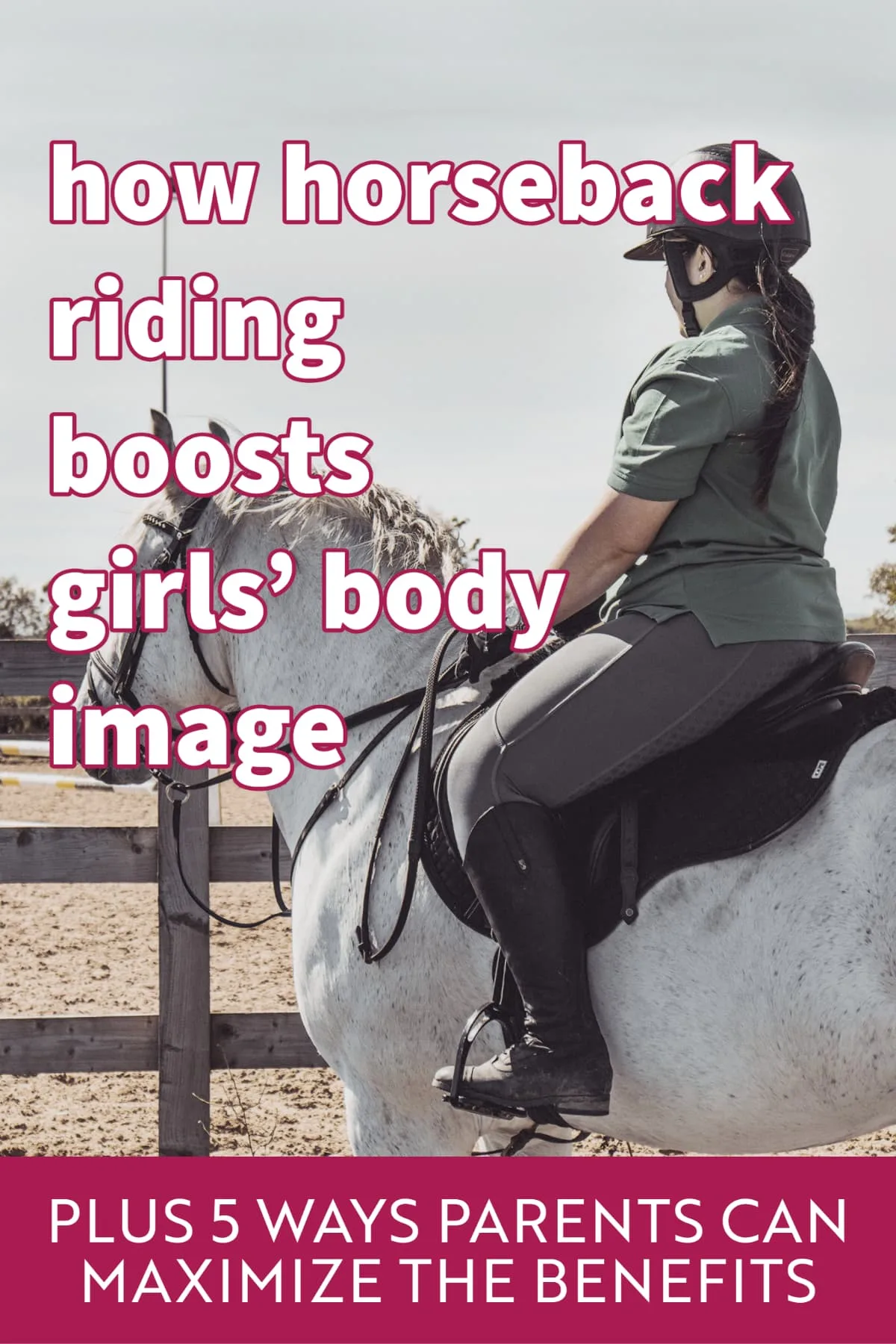
Horseback Riding as a Source of Joy and Happiness
Horseback riding has long been associated with feelings of joy and happiness. The experience of being outdoors, connecting with nature, and finding fulfillment through this activity contributes to a lasting sense of happiness.
The Joy of Being Outdoors
Horseback riding offers the opportunity to escape from indoor environments and immerse oneself in the beauty of nature. Riding in scenic landscapes, feeling the wind on your face, and absorbing the sights and sounds of the natural world evokes a sense of freedom and joy. The simple act of being outdoors and appreciating the wonders of nature contributes to overall happiness.
Connecting with Nature
The connection with nature that horseback riding fosters is a source of mindfulness and serenity. Riding through forests, fields, or along serene trails allows riders to experience a deeper connection with the natural world. This connection awakens the senses, promotes a sense of unity with the environment, and ignites a sense of joy and wonder.
Finding Happiness and Fulfillment
The sense of purpose and fulfillment that comes from engaging with horses can enhance overall happiness. The bond formed with a horse, the sense of accomplishment in mastering new skills, and the appreciation for the beauty of riding all contribute to a deep and lasting happiness. The joy derived from horseback riding is not fleeting but rather a result of a genuine and fulfilling experience.
Horseback Riding and Body Language
Horseback riding serves as a platform for improving non-verbal communication skills, reading and responding to horse’s cues, and understanding body language signals.
Improving Non-Verbal Communication Skills
Horses are highly attuned to non-verbal communication, and riders must develop proficiency in this form of interaction. Through subtle body movements, shifts in weight, and rein and leg aids, riders can effectively communicate their intentions to the horse. By honing these non-verbal communication skills, riders not only become more effective with their horses but also enhance their ability to connect and communicate with others in their daily lives.
Reading and Responding to Horse’s Cues
Horses communicate their thoughts and intentions through their own body language and cues. Recognizing and understanding these signals are crucial for effective riding. Riders must learn to read the horse’s ears, tail, posture, and overall demeanor to discern its mood and needs. Prompt and appropriate responses to these cues not only create a harmonious partnership between rider and horse but also develop an acute sense of observation and empathy.
Understanding Body Language Signals
Interacting with horses requires an understanding of the subtle nuances of body language. Horses communicate through ear position, tail swishing, head carriage, and other physical cues. By studying and interpreting these signals, riders gain insight into the horse’s emotions, intentions, and level of comfort. This understanding of body language extends beyond the equestrian world and can be applied to improve communication and empathy in human relationships.
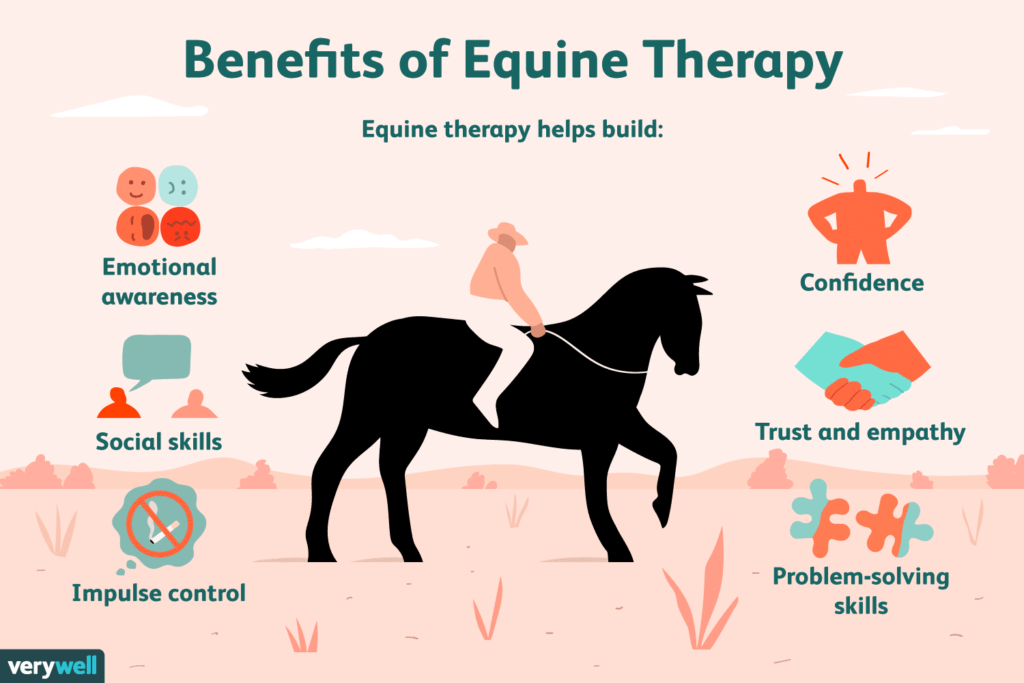
The Influence of Horseback Riding on Self-Confidence
Horseback riding has a profound influence on self-confidence by aiding in overcoming limiting beliefs, building resilience and determination, and embracing perseverance.
Overcoming Limiting Beliefs
Engaging in horseback riding often requires individuals to confront their own limiting beliefs and fears. Whether it is perceived physical limitations or self-doubt, riders learn to push past these barriers and realize their true potential. Overcoming these limiting beliefs fosters a sense of empowerment, instills confidence, and encourages individuals to reach for new heights.
Building Resilience and Determination
Horseback riding can be challenging and presents individuals with various obstacles to overcome. Determination and resilience are necessary to persist through these challenges and achieve success. The process of repeatedly striving, facing setbacks, and finding the strength to continue develops resilience and determination. These traits transfer to other aspects of life, enabling individuals to face and overcome adversities with confidence and perseverance.
Embracing Perseverance
Horseback riding demonstrates the importance of perseverance in the pursuit of goals. Progress in riding often requires time, practice, and patience. Riders must understand that setbacks and failures are a natural part of the learning process. Through perseverance, individuals learn to embrace challenges, adjust their approach, and continue working towards their goals. This mindset of perseverance fosters self-confidence and instills a belief in one’s ability to overcome obstacles.
Harnessing the Therapeutic Power of Horseback Riding
Horseback riding offers numerous physical benefits for individuals with disabilities and also serves as a form of mental and emotional rehabilitation. Engaging in this activity improves overall well-being and contributes to a holistic sense of healing.
Physical Benefits for Individuals with Disabilities
For individuals with physical disabilities, horseback riding can provide numerous physical benefits. The rhythmic motion of riding promotes muscle strength, balance, coordination, and flexibility. Additionally, being on a horse allows individuals to experience a sense of freedom and mobility that may be restricted in their daily lives. Engaging in horseback riding offers individuals with disabilities the opportunity to enjoy physical activity and experience the joy of movement.
Mental and Emotional Rehabilitation
Horseback riding has a profound impact on mental and emotional well-being, making it an effective form of rehabilitation. The bond formed between rider and horse creates a sense of companionship and emotional support. This connection can be particularly valuable for individuals who are going through emotional trauma or struggling with mental health issues. The peacefulness of horseback riding, the connection with nature, and the non-judgmental presence of the horse contribute to mental and emotional healing.
Improving Overall Well-being
Engaging in horseback riding promotes overall well-being by addressing physical, mental, and emotional aspects of health. The combination of exercise, connection with nature, and the therapeutic relationship with the horse creates a comprehensive approach to well-being. Riding becomes a holistic experience that nurtures the mind, body, and spirit, resulting in improved overall wellness and a greater sense of fulfillment.
In conclusion, horseback riding offers numerous benefits for self-esteem and overall well-being. From increased confidence and enhanced self-worth to improved social skills and empowerment, engaging in this activity provides a transformative experience. Whether utilized as a recreational pursuit, a therapeutic intervention, or a source of joy, horseback riding has the potential to positively impact individuals of all ages and backgrounds.
